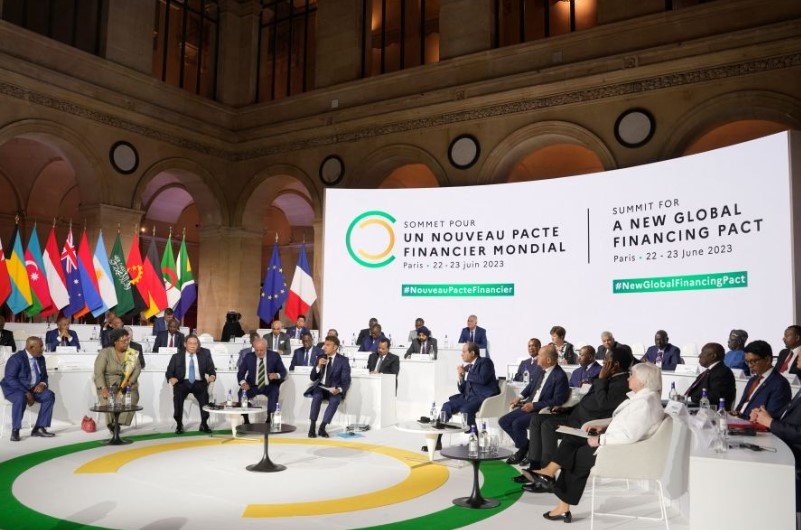Leaders from the European Union and Egypt gathered in Brussels on October 22, 2025, for their first ever summit to strengthen partnerships amid global challenges. Egyptian President Abdel Fattah el Sisi met with European Commission President Ursula von der Leyen and European Council President Antonio Costa to discuss economic aid, migration controls, and stability in Gaza, aiming to build a more secure and prosperous future for both sides.
This historic meeting comes at a time when Europe seeks reliable allies in the Mediterranean region, while Egypt faces economic pressures from inflation and regional conflicts. The talks highlight a shared interest in tackling migration flows, boosting trade, and addressing the ongoing crisis in Gaza, which has ripple effects across the Middle East.
Key Leaders and Agenda Highlights
The summit brought together top figures to address pressing issues. President el Sisi represented Egypt, emphasizing his nation’s role as a key player in regional peace. Von der Leyen and Costa spoke for the EU, focusing on mutual benefits like economic support and security cooperation.
Discussions covered a wide range of topics, from trade deals to humanitarian aid. Leaders announced plans for increased EU funding to Egypt, including admission to the Horizons research program. This move aims to foster innovation and job creation in Egypt, helping to stabilize its economy.

The agenda also included talks on global trade disruptions. With tensions from US policies under President Donald Trump and export limits from China, both sides explored ways to diversify supply chains and enhance energy cooperation.
Economic Ties Take Center Stage
Egypt and the EU share a strong trade relationship, with the EU as Egypt’s largest trading partner. In 2024, bilateral trade reached about 32.5 billion euros, covering goods like textiles, chemicals, and agricultural products. The summit built on last year’s 7.4 billion euro aid package, which provided loans and investments to support Egypt’s economy.
Inflation in Egypt has soared to over 30 percent in recent months, driven by global events such as the Russia Ukraine war and Red Sea shipping attacks by Houthi groups. These disruptions have cut Suez Canal revenues by nearly 50 percent, hurting foreign currency reserves. Leaders discussed new investments in infrastructure and renewable energy to counter these challenges.
The EU’s Pact for the Mediterranean played a big role in the talks. This initiative offers aid in exchange for cooperation on migration and security. Egypt could see more funding for projects that create jobs and reduce poverty, which in turn might lower migration pressures.
Here is a quick look at key economic figures between the EU and Egypt:
| Aspect | Details | Impact |
|---|---|---|
| Trade Volume (2024) | 32.5 billion euros | Boosts jobs in both regions |
| EU Aid Package (2024) | 7.4 billion euros | Supports loans and programs |
| Suez Canal Revenue Drop | 50 percent since 2023 | Reduces Egypt’s foreign earnings |
| Inflation Rate in Egypt | Over 30 percent | Increases living costs for citizens |
This table shows how economic ties are vital for stability.
Migration Challenges and Solutions
Migration remains a hot topic for both Egypt and the EU. Over the past decade, millions have fled conflict and poverty in Africa and the Middle East, heading to Europe. This has led to stricter border controls and political shifts, including the rise of far right groups in several EU countries.
Egypt serves as a key transit point for migrants. Leaders at the summit explored ways to manage flows humanely, such as improving border monitoring and providing aid to origin countries. The EU plans to increase support for Egypt’s efforts to curb irregular migration, in line with the Mediterranean Pact.
Human rights groups have called for balanced approaches. They urge the EU to push Egypt on issues like arbitrary detentions and fair trials. At the same time, Egypt seeks more EU help to address root causes like unemployment and instability.
Practical steps discussed include:
- Expanding training programs for Egyptian border guards.
- Investing in community projects to reduce migration drivers.
- Sharing intelligence on smuggling networks.
These measures aim to create safer pathways while respecting human rights.
Focus on Gaza Stability and Regional Peace
The Gaza situation loomed large over the summit. The ongoing conflict has caused widespread destruction and displacement, affecting neighboring countries like Egypt. President el Sisi reiterated his support for a two state solution, calling it essential for lasting peace.
Leaders discussed humanitarian aid and reconstruction efforts. The EU has pledged more support for Gaza through Egypt, which controls a key border crossing. Recent Houthi attacks in the Red Sea have complicated aid delivery, making cooperation even more critical.
El Sisi described recent US proposals as a potential last chance for peace. The talks also touched on broader Middle East stability, including tensions with Israel and the need for international backing.
The summit highlighted Egypt’s role in mediating ceasefires. With over 40,000 deaths reported in Gaza since the conflict escalated, both sides agreed on the urgency of de escalation and aid access.
Broader Implications for Global Relations
This summit reflects shifting global dynamics. As the US focuses inward under Trump, the EU is stepping up partnerships in the Mediterranean. Egypt benefits from diversified alliances, reducing reliance on any single power.
Experts see this as a model for future deals. Similar pacts with countries like Morocco and Turkey could reshape regional trade and security. However, challenges remain, including Egypt’s internal reforms and the EU’s migration policies.
The meeting also ties into recent events, such as the EU’s restart of a civilian mission at the Gaza Egypt border in October 2025. This mission supports ceasefire efforts and aid flow, showing practical outcomes from the talks.
In the end, the summit strengthens bonds that could lead to more stable economies and fewer conflicts. Readers, what do you think about these developments? Share your thoughts in the comments and spread the word by sharing this article with others interested in global news.
